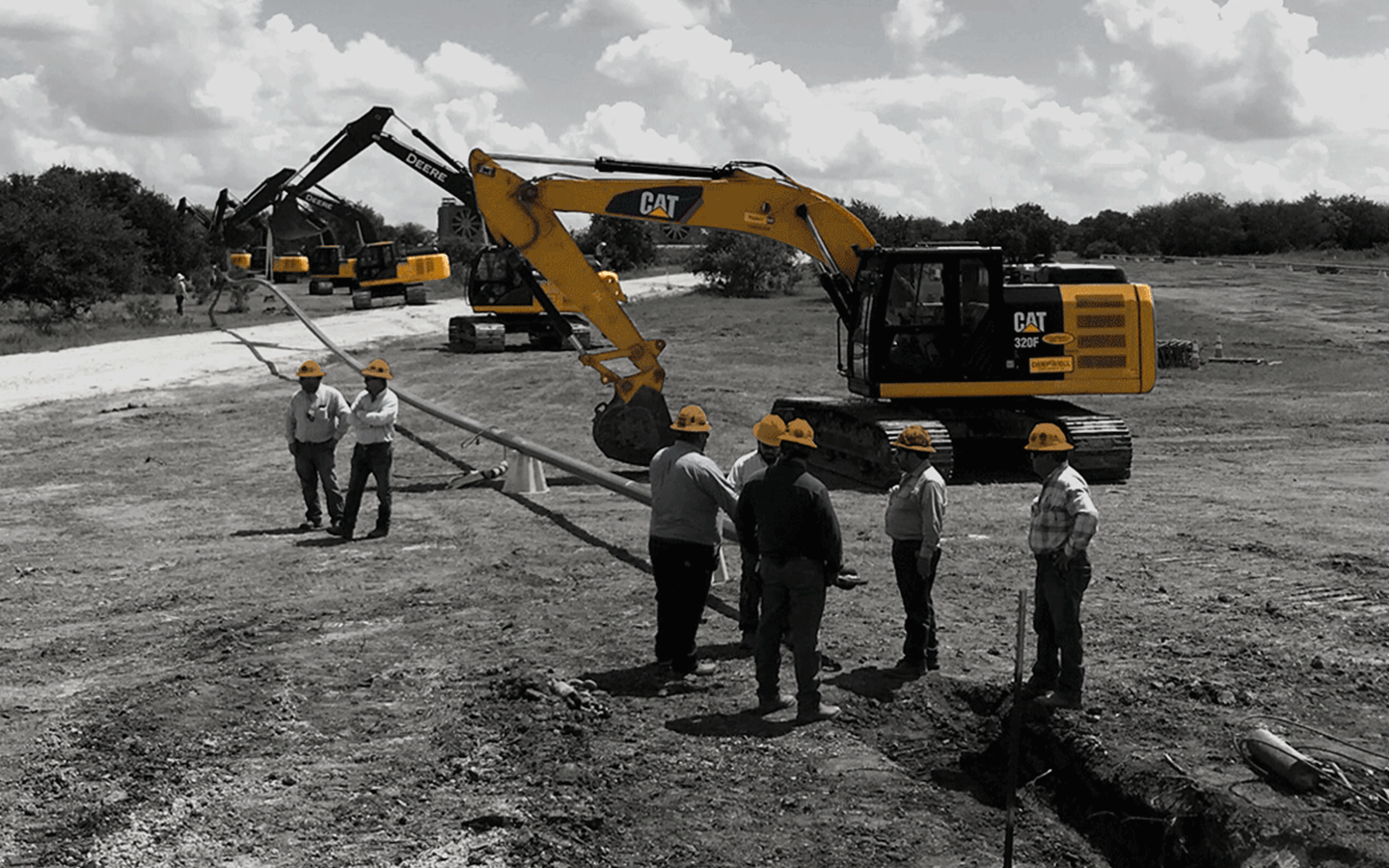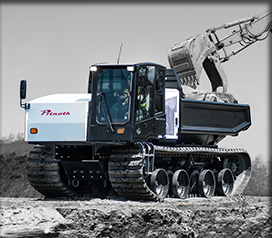Superior Oilfield pipeline equipment rentals: examples from the field
Wiki Article
A Comprehensive Guide to the Different Sorts Of Oil Field Equipment and Pipeline Equipment Available
The oil and gas industry counts greatly on customized tools for efficient extraction and transport. Numerous types of equipment, from drilling rigs to tank, play crucial roles in this complicated process. Each tool serves unique features that contribute to general functional success. Understanding these parts is necessary for anyone involved in the sector. As the market develops, so also do the modern technologies that support it. What advancements are on the horizon?
Drilling Rigs: The Backbone of Oil Expedition
Drilling rigs serve as the crucial machinery in the domain of oil exploration, allowing business to access hydrocarbon books hidden deep underneath the Planet's surface. These rigs come in various types, including land rigs, offshore rigs, and mobile systems, each created to operate in particular environments. Furnished with advanced innovation, piercing rigs can penetrate geological developments with accuracy, making sure reliable resource removal. The structural honesty and operational capacities of these rigs are critical, as they have to hold up against extreme problems and significant stress. The selection of a boring rig influences the general job price and timeline, making it an essential factor to consider for oil firms looking for to optimize their exploration initiatives and take full advantage of productivity in their operations.Pumps: Vital for Liquid Movement
In the oil removal process, the function of pumps is considerable, assisting in the activity of fluids throughout various stages of manufacturing. Pumps are crucial for delivering crude oil, water, and various other liquids from below ground reservoirs to the surface area and after that with pipelines to refineries. They come in different kinds, consisting of centrifugal, positive displacement, and submersible pumps, each offering particular functions based on the fluid features and operational needs. Centrifugal pumps are typically made use of for their efficiency in high-flow applications, while positive displacement pumps master handling thick fluids. The selection of pump impacts total efficiency, functional safety and security, and maintenance costs. Appropriate selection and maintenance of pumps are essential for enhancing production and lessening downtime in oil area operations.Shutoffs: Controlling Circulation and Pressure

Shutoffs play a crucial function in taking care of the flow and pressure of liquids within oil areas and pipelines. Numerous kinds of valves serve distinctive applications, each developed to accomplish certain features fundamental for reliable procedure - Superior Oilfield Rentals oilfield. Understanding the attributes and uses these valves is vital for maximizing system performance and security
Kinds of Valves
Necessary elements in oil area operations, shutoffs play an important function in controlling the circulation and stress of fluids within pipes and tools. Various kinds of valves are used to satisfy the varied demands of oil and gas manufacturing. Common types consist of gateway shutoffs, which give a straight-line flow and marginal pressure decrease; globe shutoffs, known for their throttling abilities; and sphere valves, identified for their fast on/off control. Additionally, check valves prevent heartburn, while butterfly valves offer a lightweight remedy for regulating flow. Each shutoff type is developed with particular products and arrangements to endure the extreme conditions often found in oil fields, making certain integrity and performance in operations. Understanding these kinds is crucial for reliable system administration.Valve Applications and Features
While different sorts of valves serve distinctive functions, their primary applications focus on controlling flow and stress within oil and gas systems. Valves such as gate, globe, and round valves regulate liquid activity, guaranteeing peak performance and safety and security. Gate valves are generally made use of for on/off control, giving minimal circulation resistance. Globe valves, on the other hand, deal accurate flow regulation, making them suitable for strangling applications. Sphere shutoffs are favored for their quick operation and limited sealing capacities. Additionally, pressure safety valve are crucial for avoiding system overpressure, securing devices stability. In general, the ideal choice and application of valves improve functional performance, guaranteeing the trusted transport of oil and gas via pipelines and processing facilities.Compressors: Enhancing Gas Transportation
Compressors play a vital role in the reliable transportation of gas, making certain that it relocates smoothly through pipelines over fars away. These gadgets enhance the stress of gas, enabling it to get over rubbing and altitude adjustments within the pipeline system. Additionally, compressors promote the harmonizing of supply and need, fitting changes in usage and manufacturing prices. Numerous kinds of compressors are employed in the sector, including centrifugal, reciprocating, and rotary screw compressors, each offering distinct advantages based on the functional requirements. Regular upkeep of these compressors is important to optimize efficiency and lessen downtime, eventually adding to a trusted gas transportation network. Their crucial function underscores the significance of compressors in the general oil and gas facilities.Storage Tanks: Safe and Effective Liquid Administration
Efficient transportation of gas counts on different support group, one of which is the appropriate monitoring of tank. These tanks play a vital duty in safely containing fluids, ensuring that functional effectiveness is preserved while decreasing environmental dangers. Created from long lasting materials, they are created to withstand high pressures and destructive components. Appropriately sized and strategically situated, tank facilitate the smooth circulation of gas and various other fluids, protecting against bottlenecks in supply chains. Routine maintenance and monitoring are vital to find leakages or structural issues, advertising safety and security and compliance with regulatory standards. Eventually, the efficient management of tank is critical for the overall stability and reliability sewer line maintenance of the oil and gas industry's liquid handling systems.
Pipeline Equipments: Facilities for Transport
Pipeline systems function as the foundation of the oil and gas industry, facilitating the effective transport of hydrocarbons over large ranges. These systems include different components, including pipes, valves, pumps, and compressors, all meticulously created to guarantee smooth circulation. The products made use of in pipeline building and construction, often steel or high-density polyethylene, are selected for toughness and resistance to deterioration. Pipeline networks can cover throughout land and water, attaching manufacturing websites to refineries and warehouse. In addition, advanced innovation makes it possible for real-time tracking of circulation prices and stress levels, enhancing operational effectiveness. The strategic positioning of these pipelines decreases environmental impact while taking full advantage of resource ease of access, thereby playing a vital role in meeting energy needs internationally.Security Equipment: Guaranteeing Worker and Environmental Management
The procedure of pipeline systems, while necessary for power transportation, likewise presents significant safety challenges for employees and the setting. Safety and security devices plays a substantial role in alleviating these threats. Personal protective equipment (PPE) such as headgears, gloves, and non-slip footwear safeguards employees from physical risks. In addition, gas detection systems keep an eye on for leaks, ensuring that hazardous materials do not posture a hazard to workers or the bordering ecological community. Emergency closure systems are critical for quickly stopping procedures during a situation, preventing potential calamities. Spill control products, consisting of absorbents and barriers, are fundamental for decreasing ecological effect. On the whole, purchasing all-encompassing safety and security equipment is critical for preserving functional integrity and shielding both workers and the setting in the oil and gas market.
Frequently Asked Questions
Just how Do I Select the Right Oil Field Equipment for My Task?
Picking main water line leak repair the appropriate oil area devices includes reviewing job specifications, budget restraints, and operational needs. Think about factors such as devices dependability, compatibility with existing systems, and the provider's credibility to ensure peak performance and safety and security.What Are the Maintenance Needs for Oil Field Equipment?
Maintenance needs for oil field devices consist of regular examinations, lubrication, and prompt fixings. Operators needs to likewise comply with manufacturer standards, screen performance metrics, and warranty compliance with safety policies to improve durability and effectiveness.
Exactly How Can I Make Sure Compliance With Environmental Laws?
To assure compliance with ecological policies, firms should perform regular audits, apply finest techniques, purchase training, maintain appropriate paperwork, and stay upgraded on regulation (Superior Rentals near me). Cooperation with environmental companies navigate to this website can likewise boost adherence to policiesWhat Is the Average Lifespan of Pipeline Equipment?
The typical life-span of pipeline tools commonly varies from 20 to 50 years, relying on factors such as worldly high quality, environmental conditions, and upkeep practices. Routine examinations can significantly affect long life and operational performance.How Do I Securely Move Oil Field Equipment to Remote Locations?
Moving oil field tools to remote places requires cautious planning, consisting of course evaluation, protecting authorizations, utilizing suitable lorries, and making sure safety protocols are complied with. Appropriate training and communication amongst teams are necessary for successful transportation.Report this wiki page